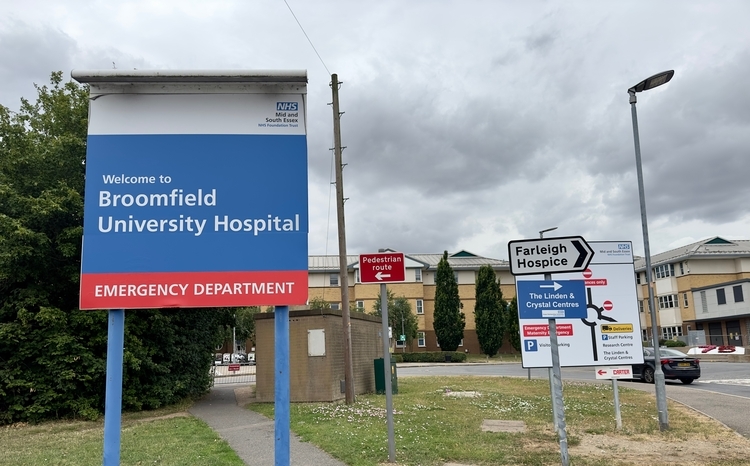The Big EPR Debate begins
- 11 April 2013

Last month, health secretary Jeremy Hunt apparently recommitted the NHS to implementing electronic patient records, as the essential foundation of a “paperless” health service by 2018.
At a number of events over the past few months, Hunt has argued that the previous, Labour government was right to try and make sure that every NHS provider had electronic record systems. It was just that its centralised delivery approach caused things to go badly wrong.
NHS England, as the NHS Commissioning Board became on 1 April, is now working on guidance for what will be expected of NHS trusts on electronic records and what support they need.
Hunt has said that guidance will be available by June. Time is tight, as all NHS trusts have to hit a number of milestones on the way to going paperless. They will be expected to have to have EPR plans in place by April 2014, and well on the way to implementing them the following year.
Where are we now?
So, as the NHS is once again urged to renew its efforts on EPR, it seems like a good time to take stock of where we are and what we’ve learned on the journey to date.
We are hardly starting from a blank sheet; and EHI is inviting readers to help shape the debate on what should be written next. After all, there are many hard-won and valuable lessons that the health service has learned and should not forget.
Does anyone remember the NHS’ very first IT strategy, published in 1992, with its six-stage EPR ladder? Does anyone remember the Electronic Record Development Implementation Programme that came out of its 1998 successor, Information for Health?
Both preceded NPfIT, which has dominated debate for the past decade, and we want to tap into the rich pool of knowledge and expertise shared by EHI readers to help refresh the NHS’s organisational memory.
And where do we need to be?
EHI will be running The Big EPR Debate editorial campaign through 2013. In the first instance, we are asking readers to help define EPR and the best ways to get there.
We hope this will help to inform NHS England’s policy and guidance on electronic records; and we have already been given an indication that this input will be welcomed.
So, starting today, we are asking readers to submit their insights and recommendations. What should the guidance look like – and what should it not attempt to do?
And what do you understand by the term ‘electronic patient record’? Definitions matter, because different strategies, experts and vendors use different terms – electronic health records, patient records, care records, personal health records.
For shorthand, we are using the term used by the health secretary; EPR. And we take this to mean the core organisational patient record – the essential foundation for subsequent integrated health, and health and social care, records.
But it will be important for everybody to be clear about what we are talking about, what we should be talking about – and what we should not count as an EPR.
Another obvious question is what the priorities should be for building towards EPR. What are the most clinically valuable components of an EPR for trusts to focus on? What can be left until later?
What is the best evidence on benefits available? What technologies should we rapidly adopt – and what should we not get distracted by?
And what steps are needed nationally and locally for different NHS organisations, recognising that they are at very different stage of progress, to successfully adopt and use electronic patient records to improve clinical care?
Readers are invited to submit their recommendations as reader comments against this article.
Take part in The Big EPR debate. Tell us what an EPR is, and what the next steps should be, using the comment box at the bottom of this article.
Straws in the wind
EHI is already reporting on how the outlines of NHS England’s approach are taking shape. The guiding principles will be local decision-making; interoperability; and open APIs; pushing standards, particularly the use of the NHS Number; and making sure that primary clinical systems provide the data needed for secondary uses, including patient involvement and choice.
There may, possibly, be some central money to help with local implementation. A £500m bid is thought to be with Treasury. But more certain is the prospect of penalties for those who fail to act.
Learning from the past
To many who do remember those old IT strategies, much of this will sound familiar. As NPfIT showed, and Hunt has recognised, it will be delivery that counts. After all, NPfIT was itself a response to the slow local progress on NHS computerisation that the earlier IT strategies envisaged.
Yet, it is ten years since NPfIT awarded multi-billion pound contracts to local service providers to deliver integrated care records across the English NHS, covering secondary, community, mental health, and primary care.
Its laudable ambition remains largely unfulfilled, particularly in the hospital sector. Many NHS hospitals have some of the building blocks of an EPR in place, but most have just a few and very few have all.
Primary care is a world leader when it comes to its use of IT, and swathes of mental health and community providers now have records that they did not have before the programme started. Yet the absence of secondary care EPRs also mean that its ambitions for truly shared records remain largely unfulfilled.
Over to you…
So what are the key lessons from the past two decades that policy makers, NHS managers, IT professionals and clinicians should keep front of mind?
What lessons should and should not be learned from previous strategies, and what can we take from the development of electronic records in primary care, community services, mental health and the armed forces?
In answering all these questions, we ask readers to please try to be constructive and focus on recommendations that others can act on. What matters? What works?
We want to be inclusive and will specifically edit out comments that are overly negative, derogatory of others, or that simply seek to refight past battles (however difficult and bruising those battles have been).
Depending on the response, we plan to publish a series of The Big EPR Debate articles, getting into more and more detail on the issues that emerge as most important. We will also use the responses as the basis for a shared online EPR Best Practice Resource.
If you have any views on the editorial campaign, then email EHI editor Jon Hoeksma. Otherwise, it’s over to you…




